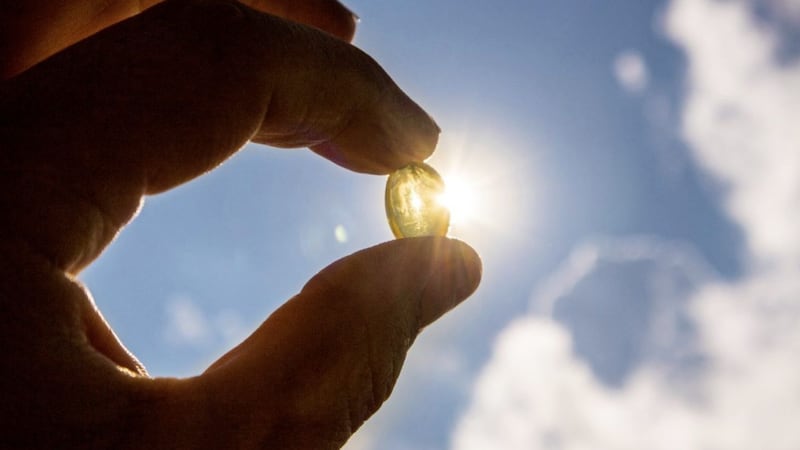RIGHT now, public health measures like social distancing, hand washing and self-isolation are our only lines of defence against Covid-19, and until a vaccine is developed, it looks like these new habits we are forming will remain in place for some time
Researchers across the world have been focusing on how diet and nutrition may play a part in how our bodies react to Covid-19, and much of this focus has been on vitamin D.
We know that vitamin D plays an important role in preventing upper respiratory tract infections and supporting our immune system’s capability of defending us against viruses.
Researchers from The Irish Longitudinal Study on Ageing (TILDA) at Trinity College Dublin have reported: "We have evidence to support a role for vitamin D in the prevention of chest infections, particularly in older adults who have low levels. In one study, vitamin D reduced the risk of chest infections to half in people who took supplements."
The potential effects of vitamin D on Covid-19 are thought to be through its multiple actions on our immune system, including its antiviral and anti-inflammatory effects.
:: Low levels in our population
The sunshine vitamin, vitamin D is a fat-soluble vitamin that plays a vital role in health – from supporting bone health and mood to immune health and cardiovascular function.
Vitamin D is produced in the skin from just 10-15 minutes sun exposure per day. Living in Ireland, we are at increased risk of vitamin D deficiency, simply because we do not get enough sunshine, and when the sun does shine, are still wearing our layers!
The TILDA report revealed that an estimated 27 per cent of adults over the age of 70, who are currently cocooning, are deficient in vitamin D, and 47 per cent of all adults over the age of 85 are deficient in winter.
They say, "A further one in eight adults over the age of 50 are deficient all year round, yet just 15 per cent of women and 4 per cent of men take a vitamin D supplement."
Last year, scientists at Letterkenny University Hospital found an incredible 75 per cent of 10,000 samples tested for vitamin D showed insufficient levels, and 12 per cent were extremely low.
We know that there are other risk factors for vitamin D deficiency, including being older (over 65), obesity, darker skin tones, infants and children under 5, pregnancy and breast-feeding women and those who work shifts, or are confined indoors.
:: Food sources
Vitamin D is not widespread in our diet, although we can get a little from oily fish and egg yolks, and certain foods are fortified with it.
:: Taking a supplement
The TILDA researchers recommend that all adults over the age of 50 should take vitamin D supplements all year round if they do not get enough sun. Those who are cocooning should also take supplements.
It is important to remember that this is a new virus and we do not have clinical studies with Covid-19 yet. However, based on the latest analysis, it would seem sensible to ensure that those infected with Covid-19 have adequate vitamin D levels because this may lessen the effects of the virus and possibly save more lives.
:: Supplement with caution
Because vitamin D is a fat-soluble vitamin, it is possible to take too much. It is recommended that we supplement 600-2000iu per day.








